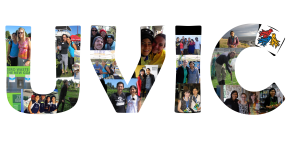Completing your degree? What’s next?
Good bye
Even with just two classes, I found it hard to concentrate in my studies during the last semester of my undergraduate degree last fall (September–December).
Most people would think you would spend the greatest effort towards the end, but I was different. I spent most of my time working, volunteering, and applying for jobs for post-graduation. It was a mix of frustration because I was trying to balance it all, but let’s be honest, work/life balance is something very hard to achieve, but it is the goal. Memories from my high school came back at times.
There was a word we used to use in my American high school that exemplified the lack of motivation for studies in the last semester. We called it ‘senior-ritus.’ You are so close to the finish line that you find it hard to push yourself that extra bit to stay engaged in your studies. So I thought I would come up with a few tips to keep you organized. If you were strategic like me, and made your very last term as light as possible, I recommend taking advantage of the extra time to work.
Managing class schedules & part-time work
- I had mostly afternoon and night classes starting after 4:30pm which gave me flexibility to work day jobs, and also apply for future permanent jobs or master’s admission applications.
- Once-a-week night courses were great!
- If you have a heavier load, try to combine your classes in one or two days of the week, so you have some more flexibility to manage your time for the rest of the days.
Job hunting and planning ahead
You’ve probably heard it before: “Getting a job straight out of college/university.” I’m here to tell you a little secret: this might have been true 40 years ago, but in 2016, you will have to test your patience.
I remember telling people it was my last term, and many people would respond with: “So what are you going to do next?” or “Are you going to do a masters?” Times have changed, and I knew I didn’t want to pursue a masters. So I responded with: “Get a job.”. But I wasn’t so sure it came out with much confidence.
The reality is, the competition new grads face these days is so much higher, and even if you did get an MA, it’s still high. Getting a job and starting your career path post-grad will most likely happen between 4-6 months after you finish you degree.
Knowing I was graduating in December, I began applying for jobs in November, but didn’t get very far given the time of the year. December is generally a time for holidays, and wrapping up; hiring is the last thing on people’s mind. Then came January which is a slow month for business. I felt like I was constantly hitting the wall. But the momentum picked up in February, and I started to get more interviews. The key is patience.
There were very dull moments when you repetitively hear no responses from submitted applications, or the automated email that says you were not the successful applicant, or the time where you were shortlisted, but just didn’t have enough experience. But, everything always works out in the end, and it really does.
After 10 interviews and over 60 applications, I finally got offered a job that will start April 15th in the city I wanted to be in: Vancouver. The organization aligns with my passion and values: Recycle Smart Solutions. It has been an amazing journey at UVic, and I appreciate the immense support that I’ve received over the last 4.5 years, and will never forget this amazing journey.
I’ll end with a few last tips:
- Practice time management throughout your university degree, because you will use it even more in your last year.
- Four months before your last term, think about what you want to do. Do you want to pursue a masters, a permanent job, or travel/take a break?
- Visit the UVic Career Centre, and meet with a career advisor; they can be an enormous help and resource.
- Update your resume, cover letters, references, and Linked In profile.
- Don’t quit your part-time jobs just yet. Keep them so you have some income (unless you are travelling).
- If you are travelling, make sure you have the finances to support this decision. Remember that unexpected events can happen, so be sure to have more than “just enough.” Financial health is also part of your overall wellbeing.
- Don’t worry if you don’t know exactly what you want. You just went through over 20 years of schooling, so it’s normal if you need some time to “figure things out.”
- Listen to your gut feeling.
I’m excited to move to Vancouver, and on my next blog, I’ll provide some tips for moving out and planning ahead in a responsible, economical, and sustainable way.



